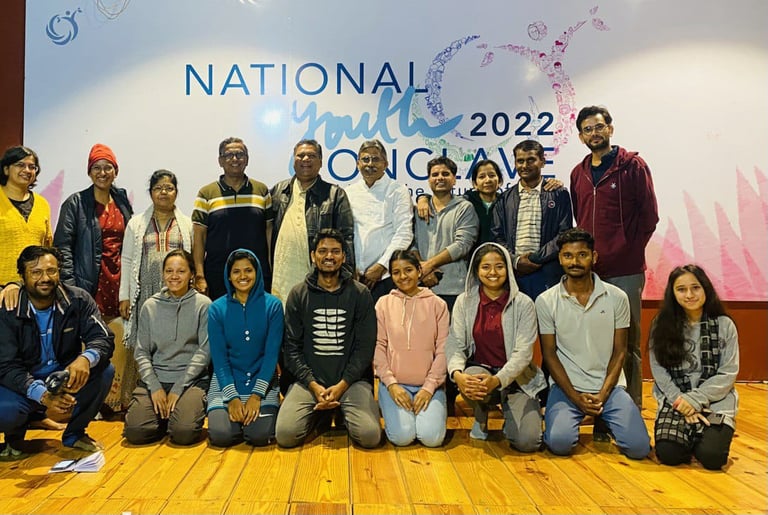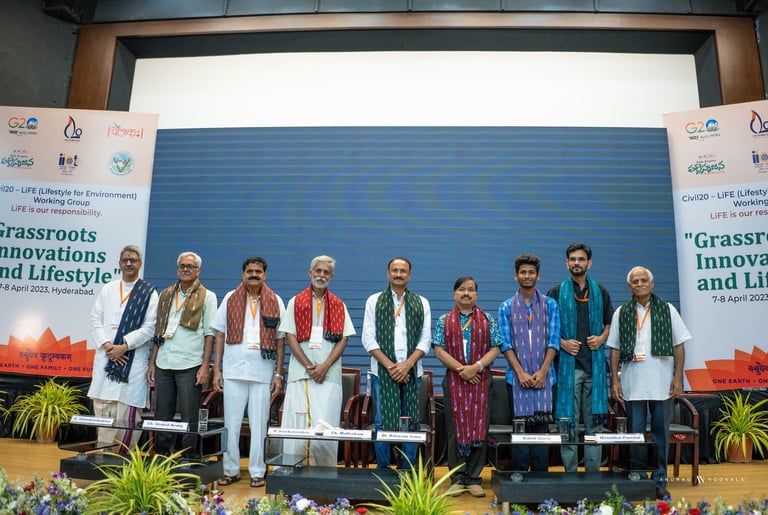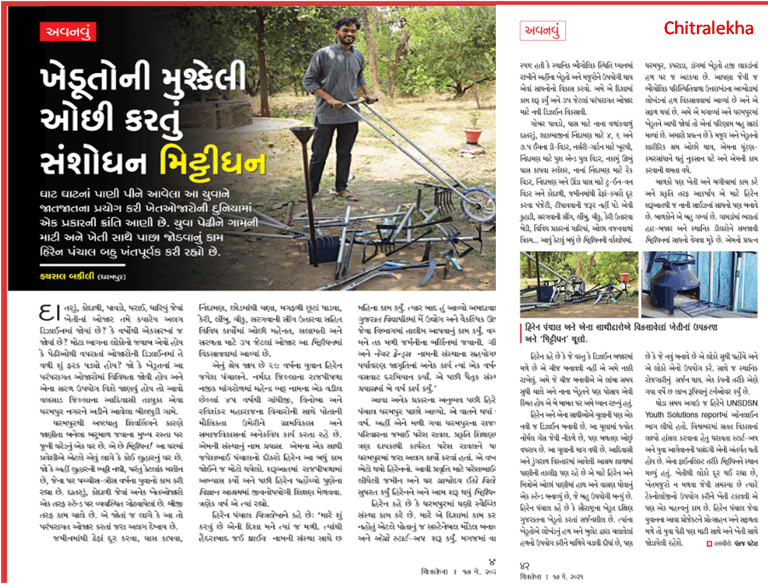Mittidhan Rural Lab
From Earth to Effort — Rural Change Begins Here.
Our mission is to empower the rural community by offering trainings, workshops and demonstrations in various topics and vocations, for the support a self-sustaining and ecologically-viable local economy. Such topics include women’s health and empowerment (smokeless chula, ergonomically-designed hand tools, basic literacy, and hygiene); youth (vocational training in both modern and traditional technologies; rural employment, games and activities, and guidance and mentorship); children (games and activities, language classes, traditional arts and crafts, and connecting to nature through farming and nature walks); and topics and gatherings for men (eco-friendly and low-cost construction techniques, farming technologies and rural innovations, organic farming techniques, seed exchanges, renewable energy and appropriate technologies, water conservation technologies, etc.).
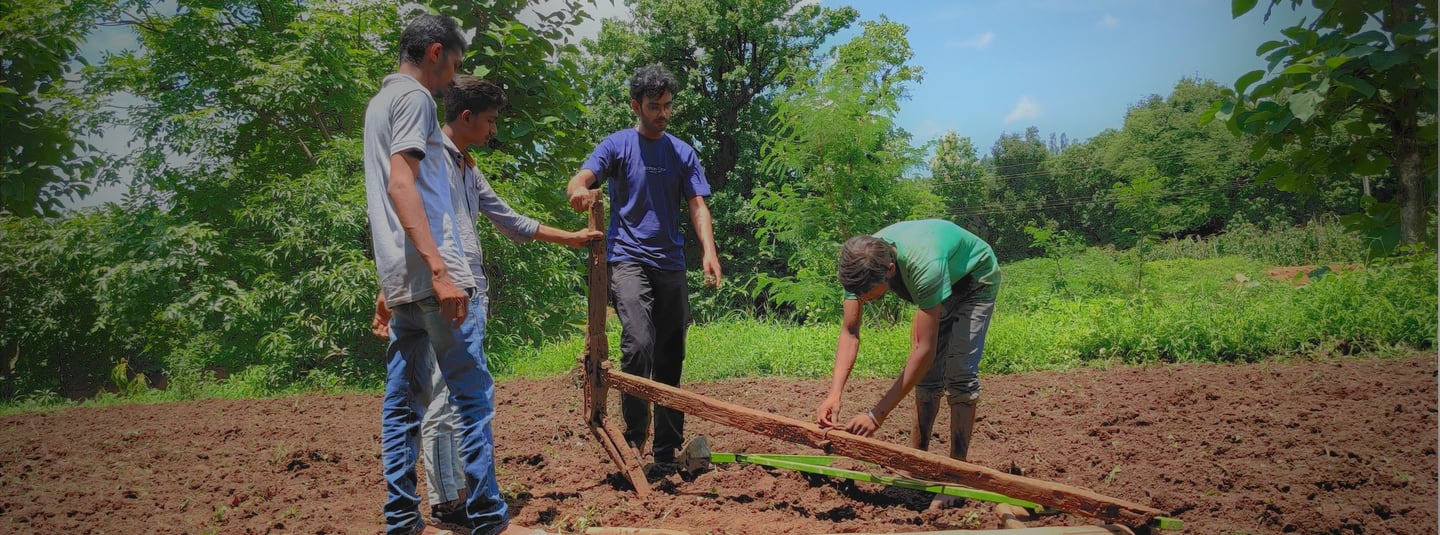

Cultivating positive change in rural communities

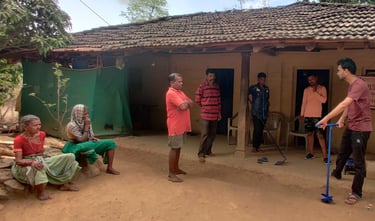
Students from Industrial Training Institute, Dharampur visited our Mittidhan Center, where they engaged in insightful discussions about launching their own enterprise. The interactive session covered various crucial aspects, including overcoming challenges and leveraging opportunities. Additionally, they received detailed information about all the machines and hand tools designed by Mittidhan. These young minds are the future of innovation and entrepreneurship!
We were honored to receive a visit from Swami ji of ISKCON - Govardhan Eco Village at Mittidhan.
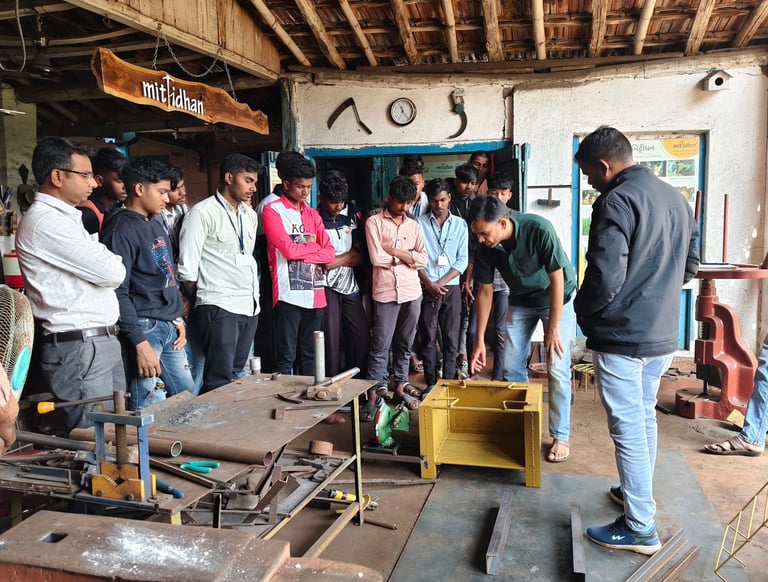

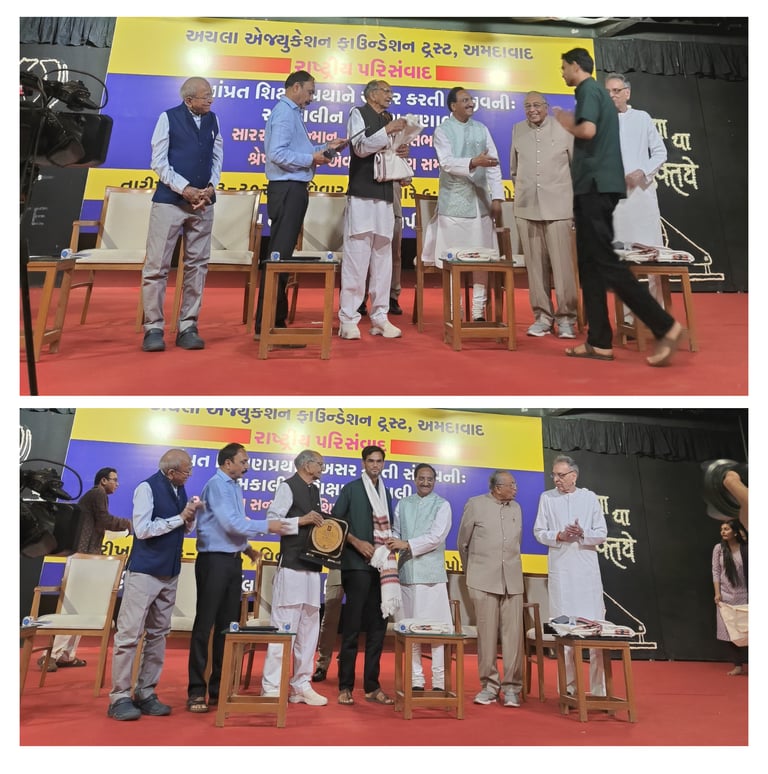

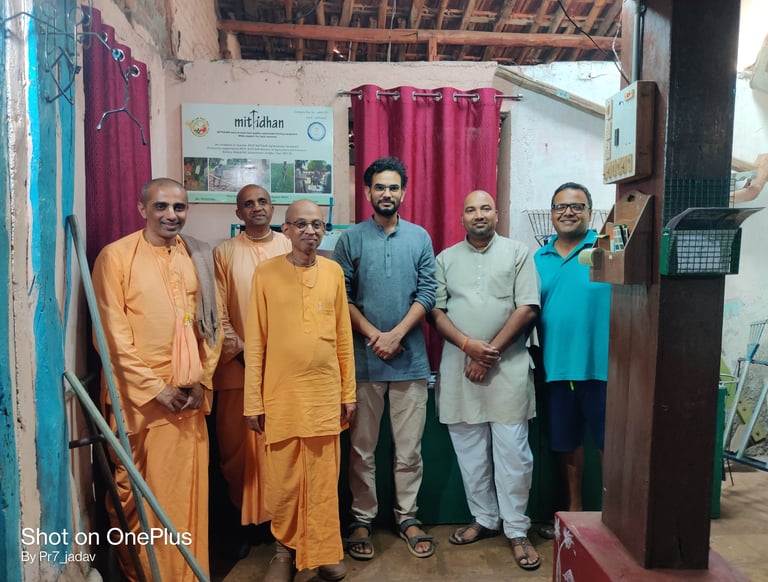

ભારતના પૂર્વ શિક્ષણ મંત્રી અને ઉત્તરાખંડના પૂર્વ મુખ્યમંત્રીશ્રી ડૉ. રમેશ પોખરીયાલ "નિશંક"ના વરદ હસ્તે તા.૩૦ માર્ચના ગૂજરાત વિદ્યાપીઠ, અમદાવાદમાં "અચલા એજ્યુકેશન ફાઉન્ડેશન ટ્રસ્ટ" દ્વારા મિટ્ટીધનના સામાજિક અને સેવાકીય ક્ષેત્રે કરેલ કાર્યો માટે "વિશિષ્ટ પ્રતિભા સન્માન" થી સન્માનિત કરવામાં આવ્યા તે પ્રસંગે ગુજરાતના શિક્ષણમંત્રીશ્રી, જાણીતા શિક્ષણવિદો, વિદ્વાનો, શિક્ષકો અને વિધ-વિધ ક્ષેત્રના મહાનુભાવો ઊપસ્થિત રહ્યા હતા. 🙏
આપ સૌના સાથ સહકાર અને માર્ગદર્શનથી જ મિટ્ટીધન નાનકડું પણ પાયાનું કામ કરી રહ્યું છે 🙏
સન્માન બદલ સૌનો આભાર વ્યક્ત કરીએ છીએ 🙏
Children's Education:
In today's world, urban kids are often glued to screens, while their rural counterparts lack exposure to modern technologies and global perspectives. To address this divide, we've launched an initiative to bring kids closer to nature and each other.
Through our ongoing program, "Bridging the Gap," we're fostering a deeper connection between rural and urban children and the natural world. Our activities include:
- Immersive camps (Bal Shibir)
- Literature and storytelling
- Arts and crafts
- Guided farming and nature walks
By empowering kids to appreciate and respect nature, we're helping shape environmentally conscious, responsible, and compassionate global citizens
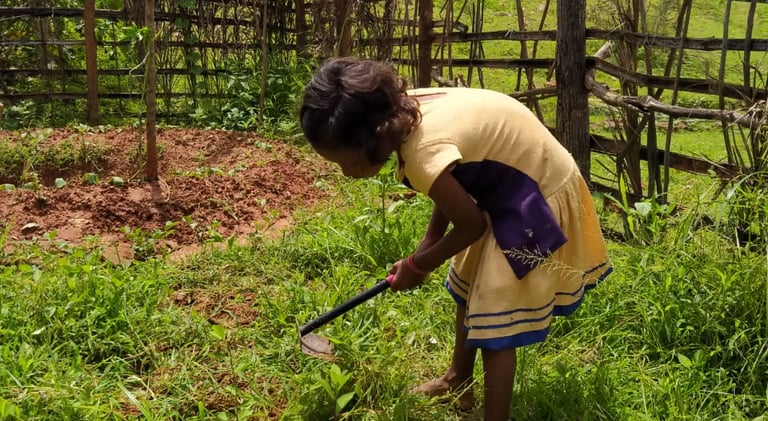

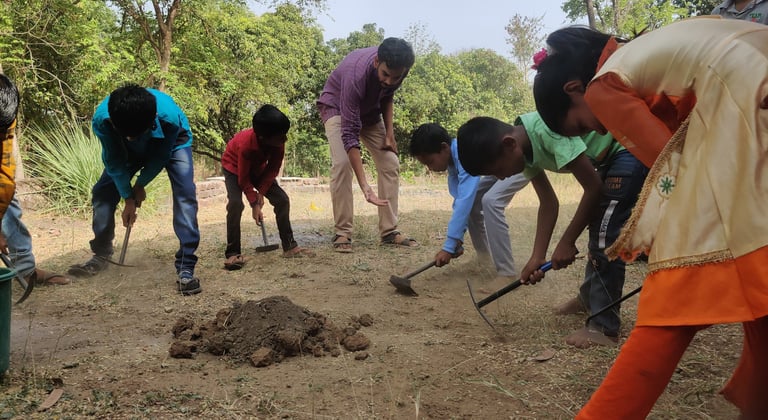

KAMAKADA
Specialty-designed, lightweight, and durable tools for kids, encouraging them to engage with soil, play, and learn farming. This hands-on approach helps kids stay focused and avoid distractions like mobile devices and TV

Clean Drinking Water for the Community & Rainwater Conservation and Harvesting
Access to clean drinking water is a fundamental right. Our mission is to provide sustainable solutions to remote villages, focusing on rainwater conservation and harvesting.
We adopt a holistic approach, reviving dry borewells by designing low-cost recharge pits that harness runoff water to restore groundwater. This ensures a reliable source of clean water for the community.
To further conserve water and prevent soil erosion, we also construct:
- Bandh Pala (trenches and stone retaining walls) to stop soil and water runoff
- Installing tanks and taps for easy access
- Improving health, crop yields, and access to fresh vegetables
- Supporting livestock, enabling families to earn a steady income
- Creating local job opportunities through community-driven "shramdan" (voluntary work)
Together, we empower villagers, foster community engagement, and promote sustainable livelihoods
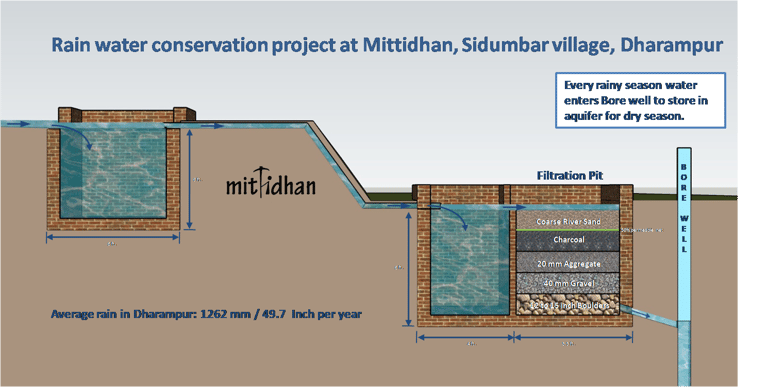

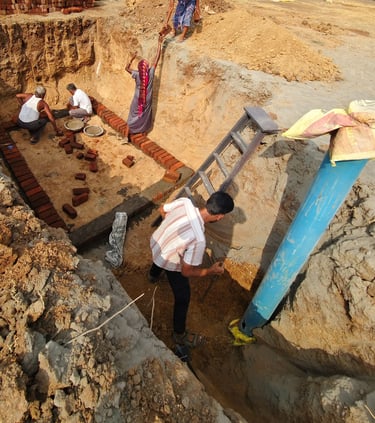

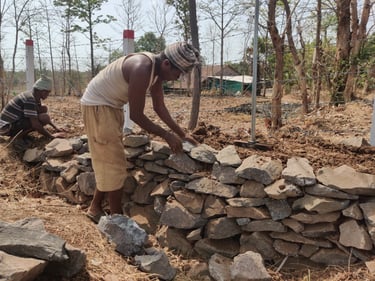

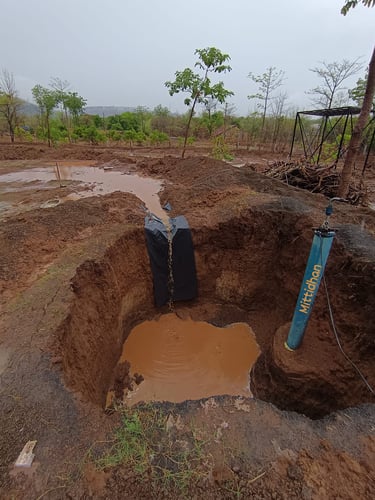

Empowering Women, Enhancing Health
We recognize the critical role women play in rural communities, often at the cost of their own well-being. Our initiative focuses on addressing the unique health challenges faced by rural women, including:
- Reproductive health issues due to heavy farm work
- Respiratory problems from cooking smoke exposure
- Nutritional deficiencies and related health concerns
Through awareness programs, health workshops, and access to resources, we aim to empower rural women to prioritize their health, build resilience, and thrive in their communities.
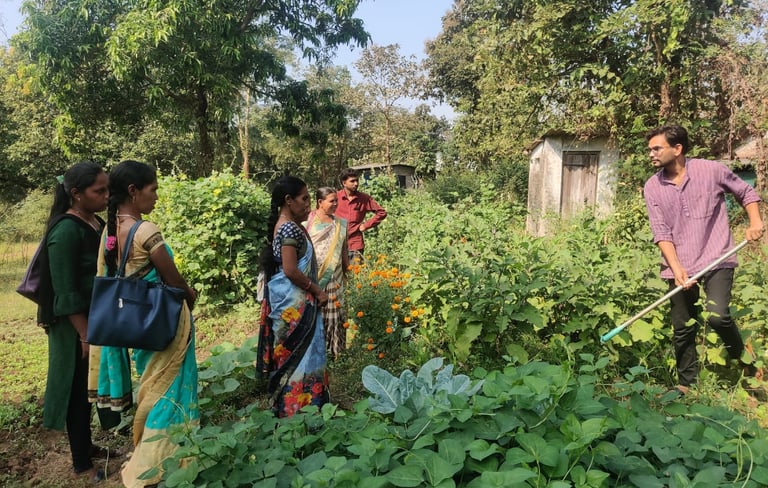

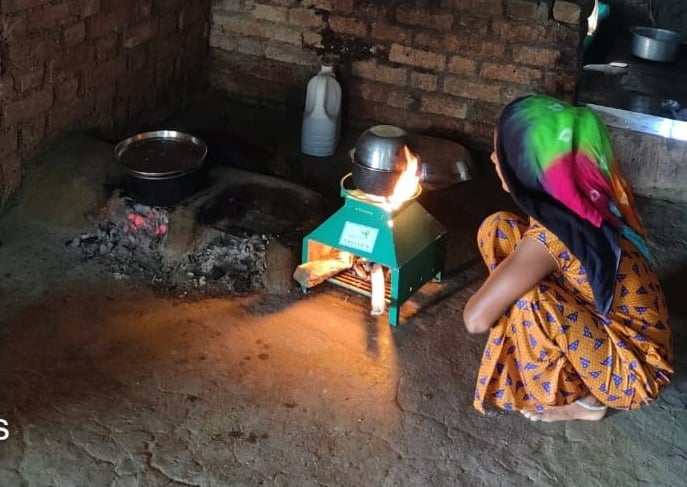

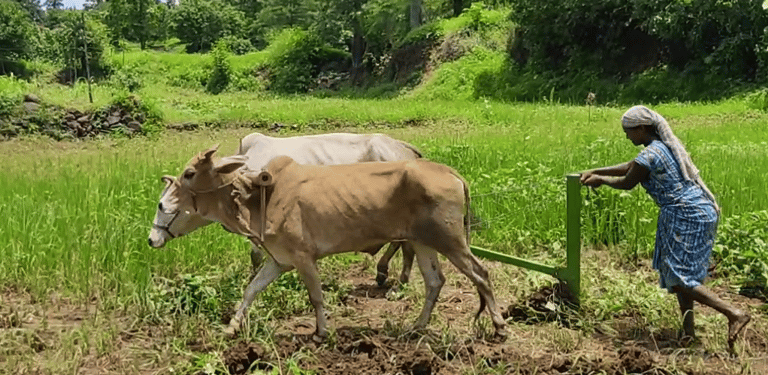

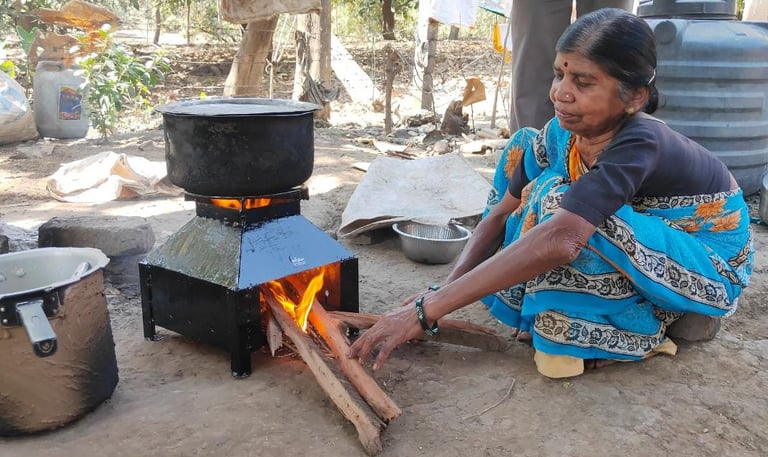

Protecting Women's Health in Rural Households
We've designed an innovative, eco-friendly cooking stove for families of 4-8, tackling indoor air pollution in rural households where 80% rely on wood for cooking, exacerbating health risks due to poor ventilation. Our specially designed chulha offers reduced wood consumption (up to 30%), minimized smoke emission (up to 70%), efficient heat distribution, quick ignition, and a portable, durable design. Already distributed to 3000+ families in Kaprada and Dharampur villages, our solution improves indoor air quality, enhances women's and children's health, and reduces respiratory problems.
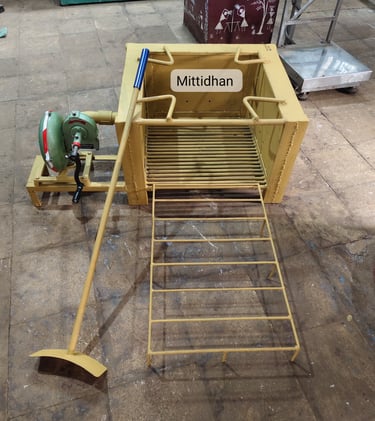

Efficient Cooking Solutions for Rural Hostels
We've designed a revolutionary wood cooking stove (chulla) specifically for Ashram Shalas (hostels) in villages, replacing traditional smoke-generating chulhas that harm children's lungs and eyes.
Our innovative design accommodates 150 students, featuring:
- Hand or electric blower for efficient combustion
- Reduced smoke emission
- Improved indoor air quality
- Enhanced cooking efficiency
- Reduced fuel consumption
Already installed in over 10 remote village hostels, our chulla receives rave reviews. Empower rural hostels with cleaner, healthier cooking solutions.
Contact us to learn more.
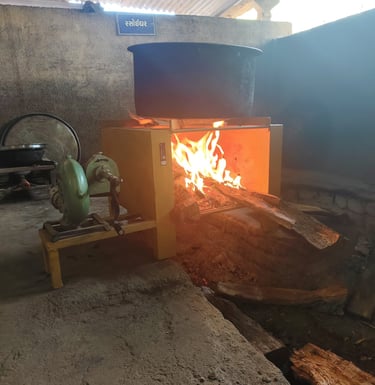

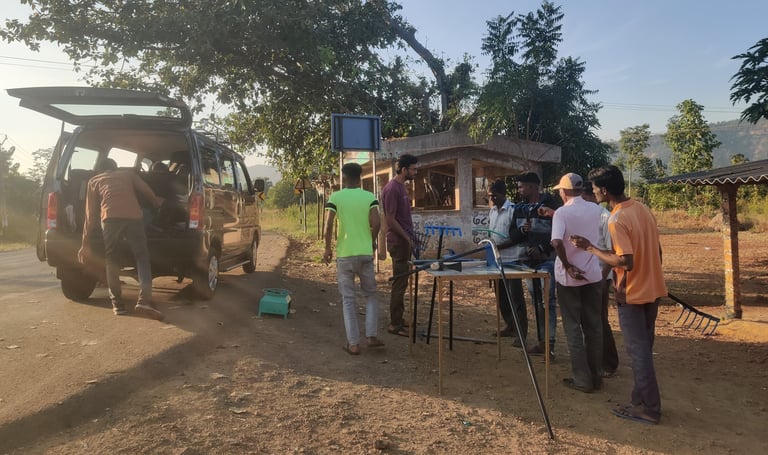

Tools on wheel
Demonstration and awareness van
There is significant innovation in farming techniques and tools including heavy machinery and drones, but marginal farmers still use age-old tools. They usually travel 35-40 km to the local market to buy tools, where options are limited. They spend a whole day traveling, incurring travel and opportunity costs, to get tools that are expensive and poor quality. Since the purchasing power is low, large companies don’t cater to the needs of marginal farmers. Hence they continue with inefficient and old design tools which are difficult to repair and maintain. It is observed that 75% of women are involved in farm activities including wedding, winnowing, grading and cleaning of fields and other supporting activities such as land preparation, transplanting, cleaning animal sheds etc. This work results in high physical strain on the body due to awkward poses such as sitting cum bending, squatting, standing cum bending for long durations of the day (Singh, Vinay, 2013). The results in many occupational hazards for farm women including musculoskeletal disorders, social stigma amongst others which can be avoided by ergonomic interventions (Singh, Arora, 2017).
Mittidhan is operating a mobile tools van to reach marginal farmers in remote areas, explain about our tools, and provide them tools at a subsidised rate. Ojaar Gadi reach the innermost villages and haat bazaars so everyone can avail the tools.
“Superior farming tools at the doorstep of small farmers”
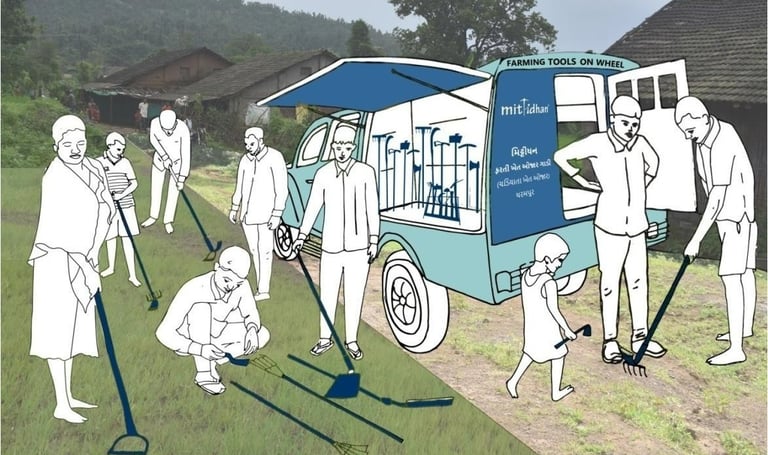

Community Tool Bank Project in remote villages of Dharampur
Farmers of Southern Gujarat are still using traditional tools which are not properly designed and they often rely on tools available in local markets. That decreases efficiency and brings many health related problems.
Our Ojaar ghar project aims to increase the availability of specially designed hand tools. We not only aim to provide hand tools, but create a support network for farmers where they can discuss their challenges and design a solution. We will also provide regular repair and maintenance of the tools, and come up with new tool design as suggested by the farmers network.
In case the farmers wish to buy tools for themselves, a portion of the sales will go in supporting the Ojaar Ghar project. The farmers who wish to be a part of the project will pay a small token amount to access the tools. This will ensure the long term financial sustainability of the project.


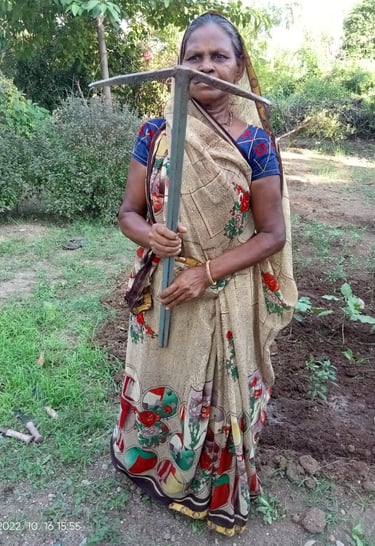

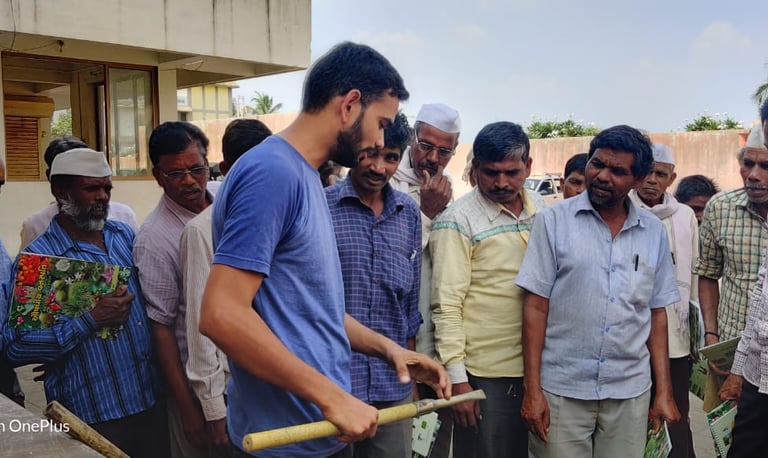

Farmer market and Farmer meetings
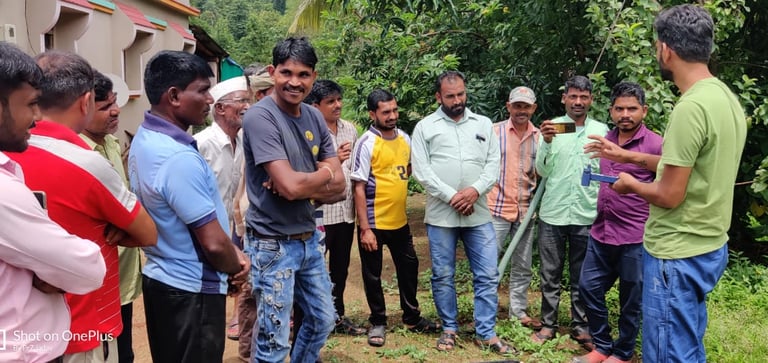

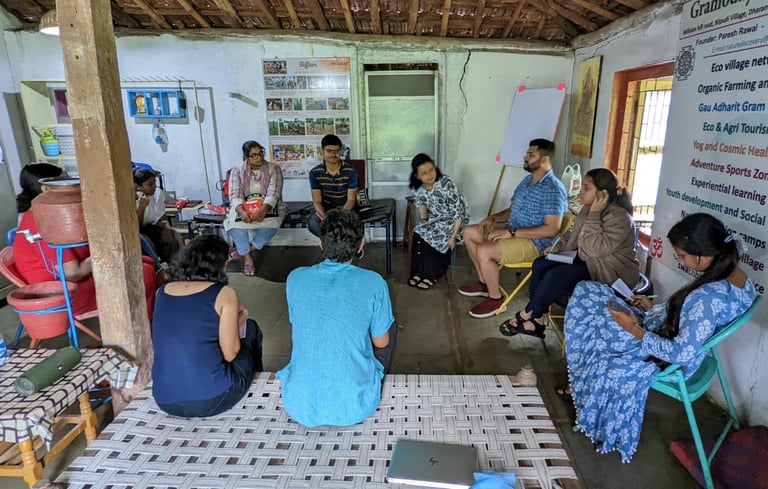

Youth Seminar
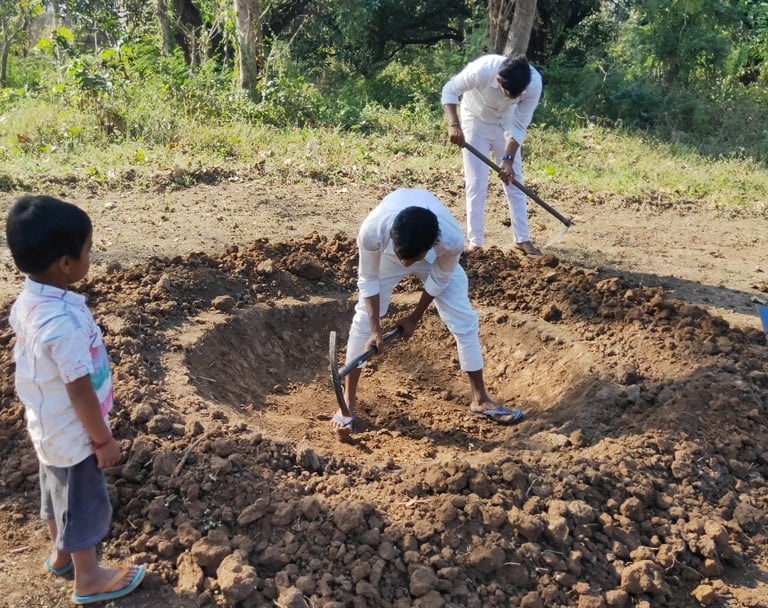

Water saving dish washing unit for Ashram Shalas
First blue tub is to throw away remains in our plates. Second pink tub is detergent water. There is also a connecting stand that holds all the 4 tubs. This is to put utensils aside after each one is washed. The pink tub. We immerse our plates and spoons into this tub with detergent water and clean well using the scrub put aside on the stand. Utensils are now supposed to be dipped into the third blue tub and wash them well. Orange tub is for the final dip. These tubs, are connected with pipes. Every time we replace fresh water into these tubs, used water is sent to plants around through these pipes. Food remains from the first blue tub is used for vermicomposting.
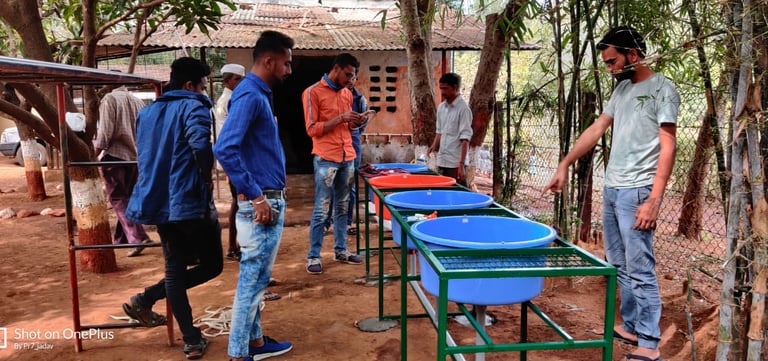

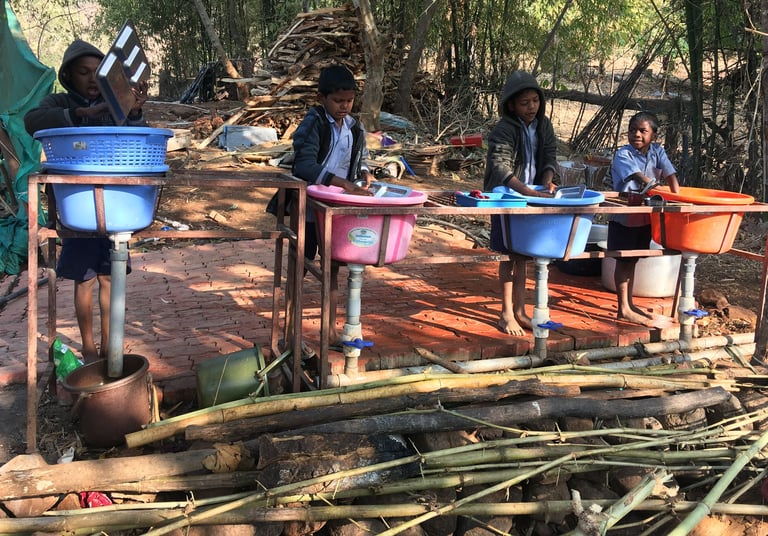

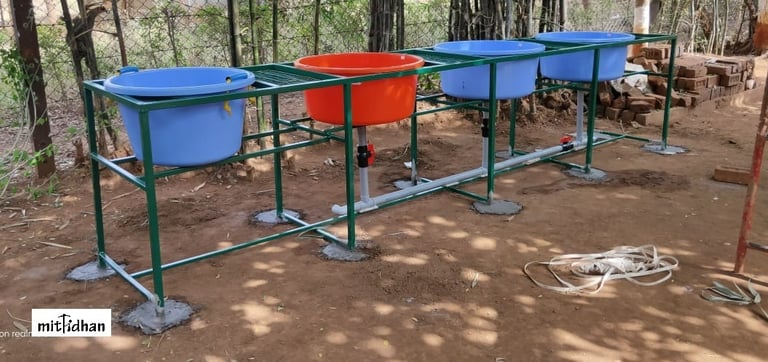

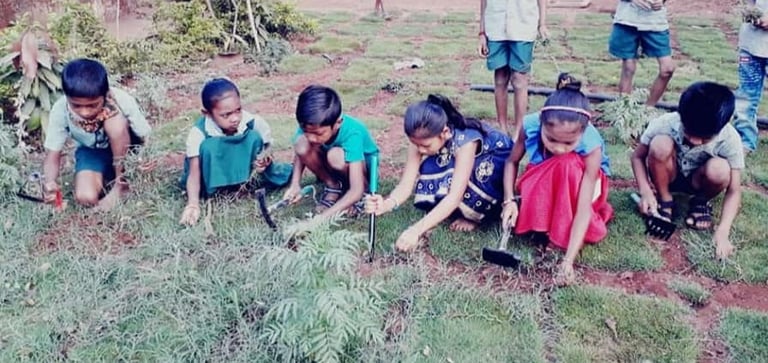

Awareness Activities with rural kids and urban kids
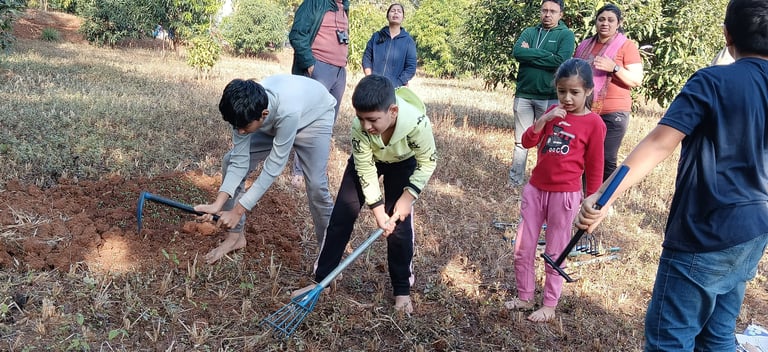

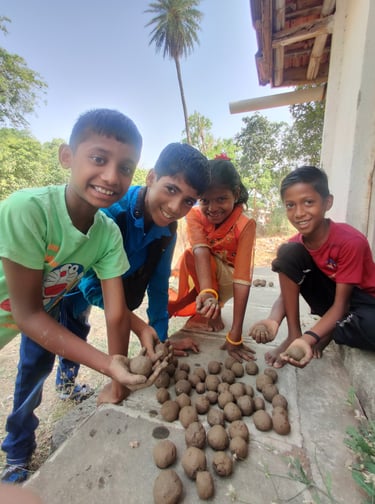

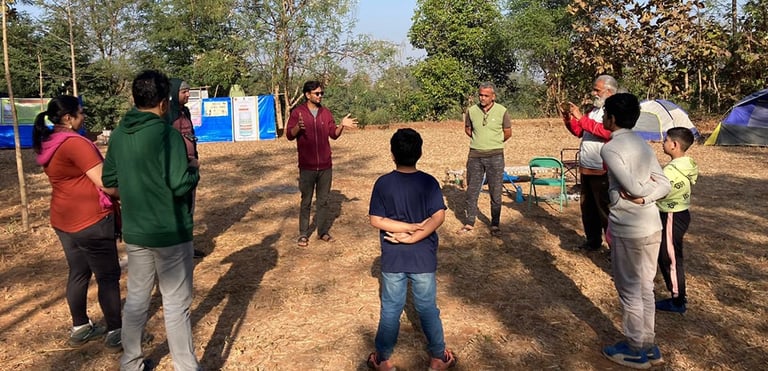

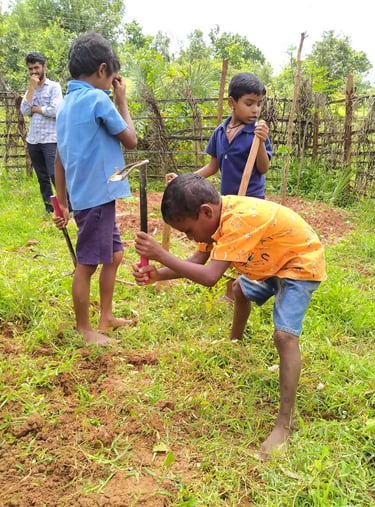

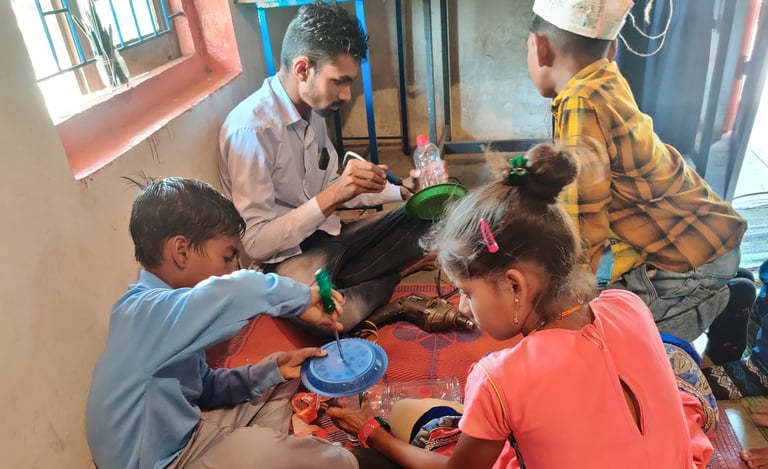

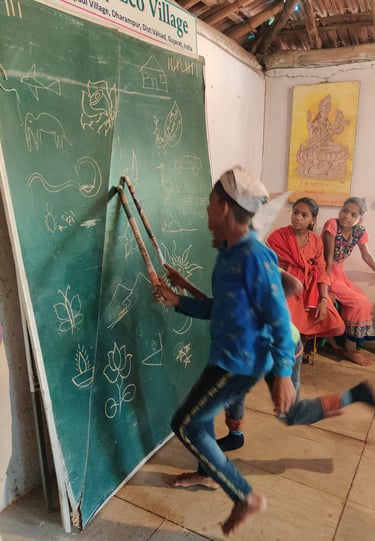

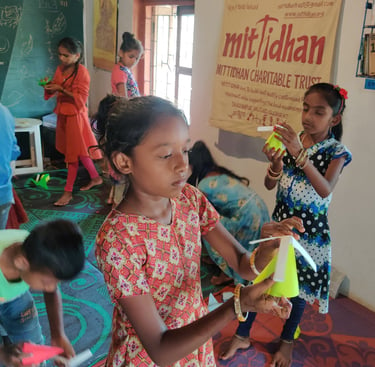

Artisan support - Woman artisan support
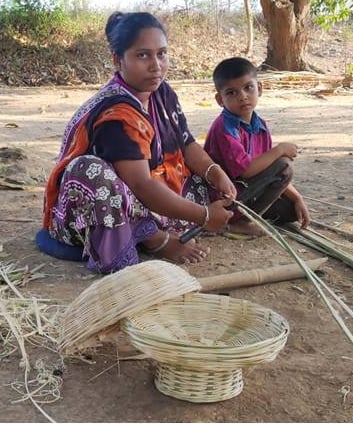

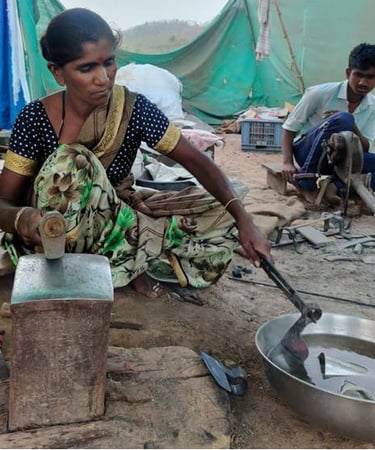

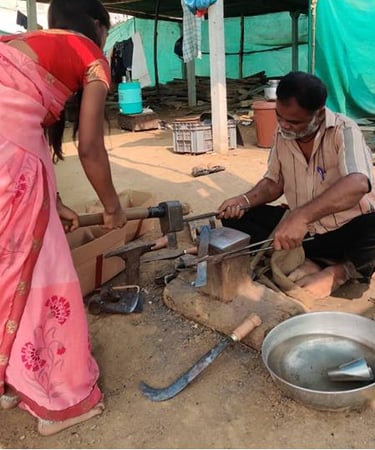

Volunteers from different Indian states, the USA, and Germany
Mittidhan would love for any like-minded individual, student, farmer, organization be a part of this initiative. They are welcome to our ‘’Technology Center” facility where everyone is encouraged to share, explore and experiment in order to contribute to our vision.
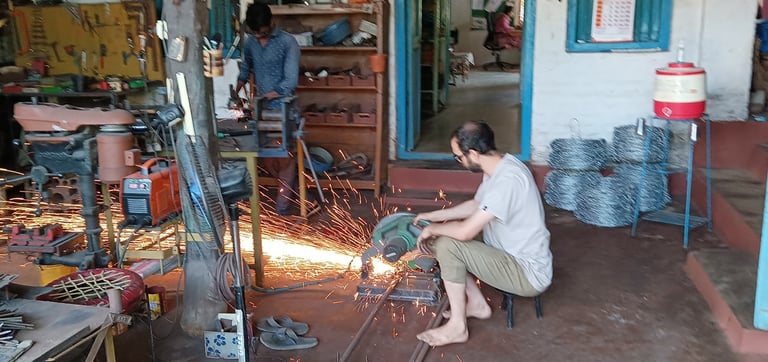

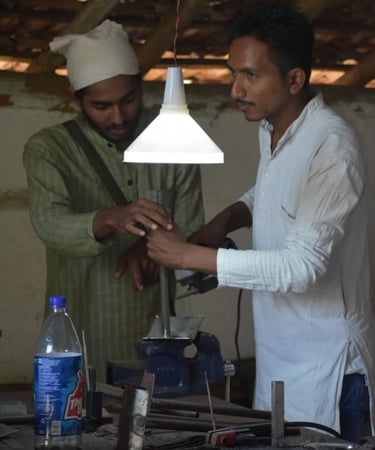

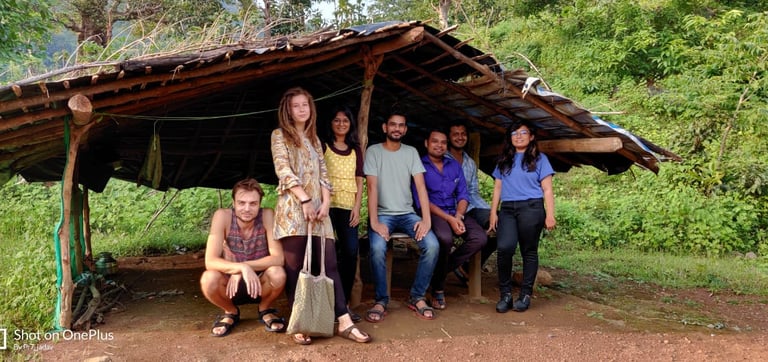

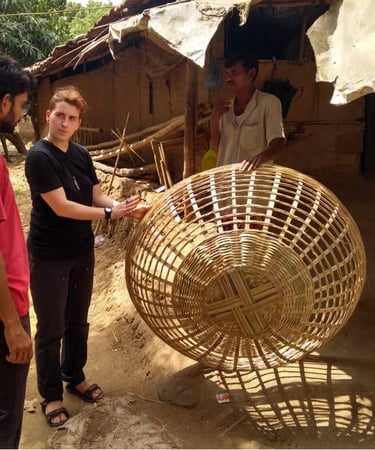

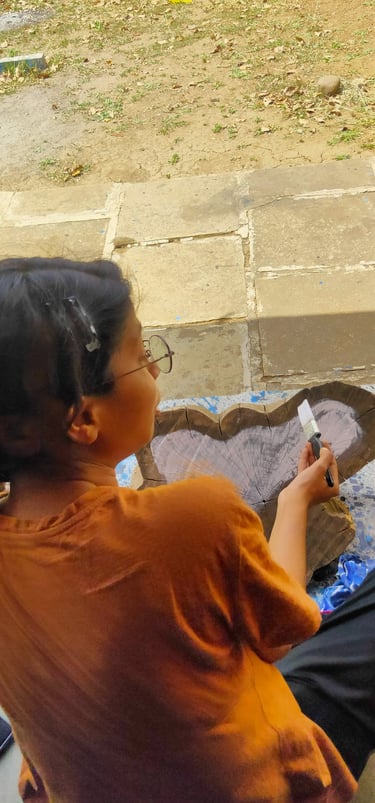



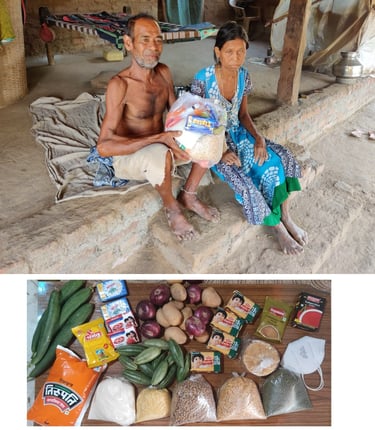

Relief work during and after COVID-19 and Cyclone Biparjoy
Providing essential items to people in extreme need (Grocery kits, Blankets, Winter caps, Educational kits to students, Chappals, LED solar emergency lights, Tarpaulin, seeds to grow their own food, and all type of support to make them independent.
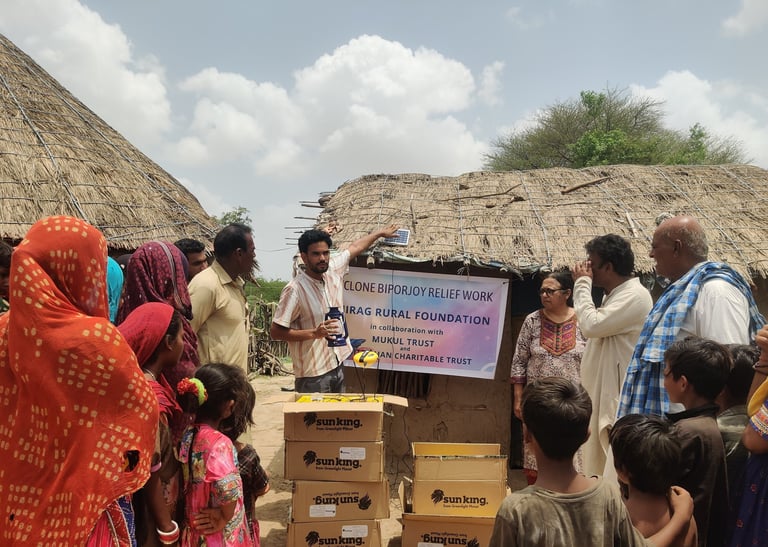

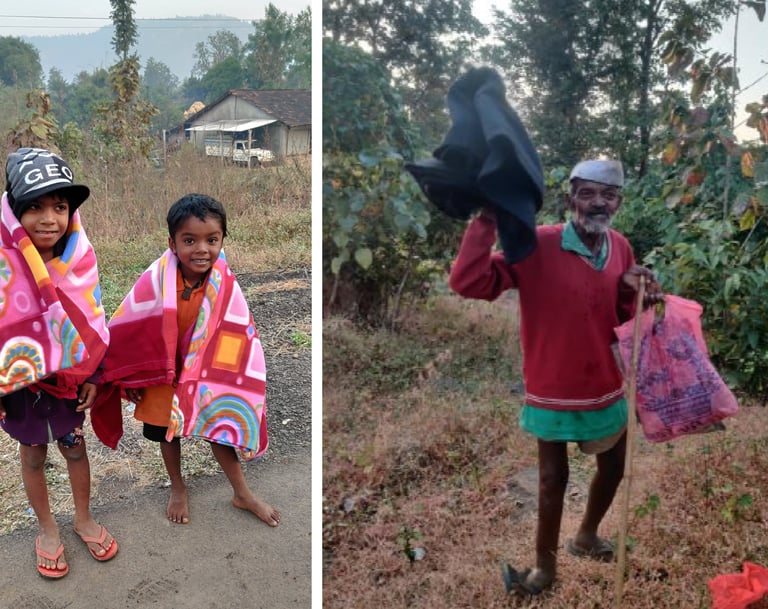


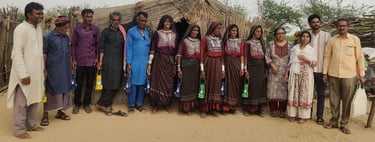
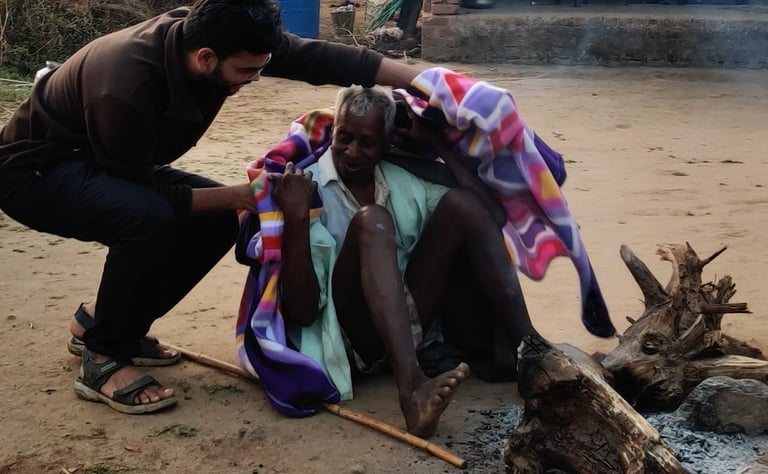

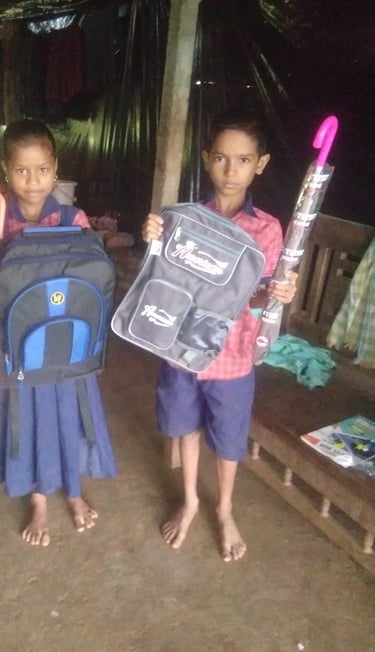

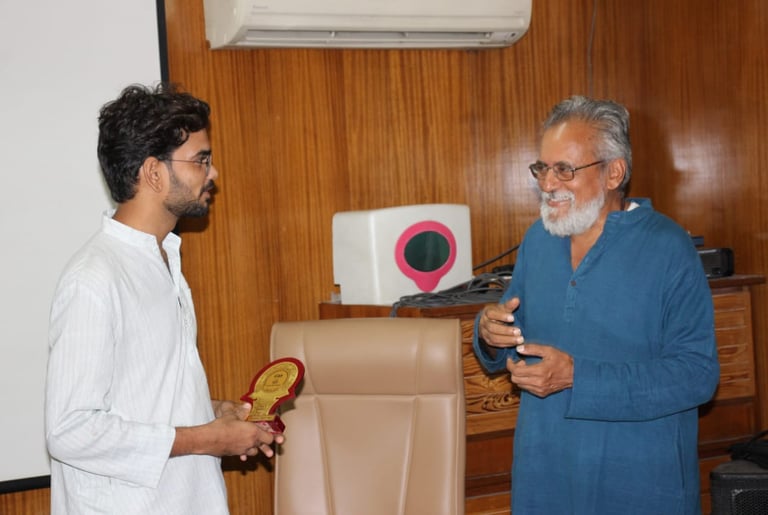

Recognition
